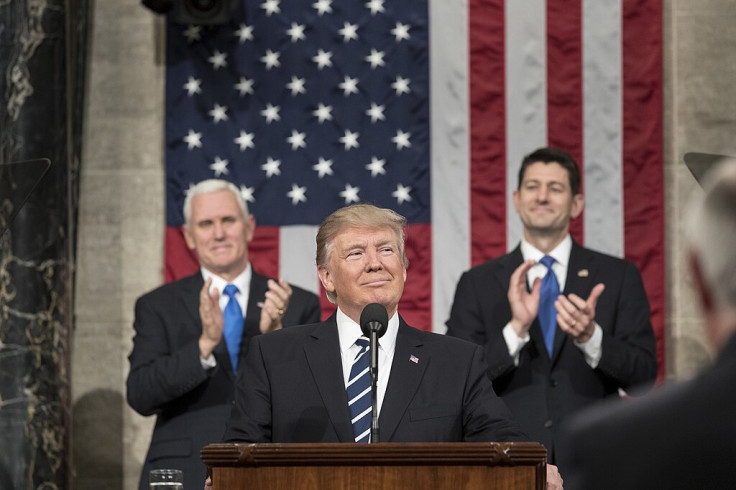Donald Trump Sued Over White House East Wing Demolition
Donald Trump is being sued after demolishing the White House East Wing for a new ballroom. See the shocking photos and details.

The images are shocking and historic: the East Wing of the White House, a symbol of American political life for over a century, has been reduced to rubble. In its place, President Donald Trump plans to build a colossal new ballroom, a $300 million project he argues is necessary for a modern presidency.
But as construction crews work around the clock, a firestorm of legal and ethical challenges is erupting. A lawsuit has been filed to halt the project, preservation groups are sounding the alarm, and critics are decrying the unilateral destruction of what former First Lady Hillary Clinton calls 'your house.'
The battle is no longer just about a building; it is a profound test of presidential power, historical preservation, and whether the 'People's House' can be remade at the whim of its temporary resident.
The Lawsuit Against Donald Trump: A Fight for the 'People's House'
On 23 October, a Virginia couple, Charles and Judith Voorhees, filed a lawsuit in the U.S. District Court for the District of Columbia, seeking a temporary restraining order to 'halt defendants' destruction of the East Wing.'
The suit alleges that President Trump has violated multiple federal laws by beginning the demolition without the legally required approvals and reviews from key oversight bodies.
Their attorney, Mark R. Denicore, told that his clients 'are just people, U.S. citizens, that don't like their house being torn down without going through proper procedures.'
The complaint argues the administration failed to submit final plans to the National Capital Planning Commission, consult with the Advisory Council on Historic Preservation, or seek guidance from the Commission of Fine Arts. Sara C. Bronin, former chair of the Advisory Council, stated that if the administration had followed these steps, 'they would have no doubt refrained from bulldozing our shared history.'
🇺🇸 White House Renovation: Donald Trump Unveils Ballroom Design
— Маrina Wolf (@volkova_ma57183) October 23, 2025
Demolition of part of the White House's East Wing has begun for this project. Construction was announced in August, with an estimated cost of $250 million. pic.twitter.com/q54RBttEa2
The Defence From Donald Trump: Presidential Authority and 'Fake Outrage'
The White House has aggressively defended the project, framing it as a continuation of presidential tradition and dismissing the public outcry. 'President Trump has full legal authority to modernize, renovate, and beautify the White House, just like all of his predecessors did,' spokesperson Davis Ingle told Politico.
Press Secretary Karoline Leavitt described the criticism as 'fake outrage', telling that 'nearly every single president... has made modernizations and renovations of their own.' The administration has compared the project to historic renovations by Theodore Roosevelt and Harry Truman. When questioned about earlier remarks that the existing structure would not be affected, Leavitt stated that 'plans changed' after consultations with architects.
Nothing about the Whitehouse will change. The iconic image that we all know and love will remain the same during the ballroom reno, only the building NEXT to the WH will be change. The WH has been renovated over 100 times.https://t.co/rfsTp4k7Xz pic.twitter.com/roWMXzlyw9
— Leslie (@YouCallMeKaren) October 24, 2025
A Controversial Ballroom: The Vision of Donald Trump
At the heart of the controversy is the sheer scale and funding of the project. The proposed 90,000-square-foot ballroom is nearly twice the size of the entire White House itself. The National Trust for Historic Preservation warned that such a structure 'will overwhelm the White House itself.'
The project is being privately funded by a group of undisclosed 'patriot donors.' The White House has not released a list of these donors, raising serious ethical concerns about potential conflicts of interest and who might be buying influence with the president.
Trump himself has argued that the White House desperately needs a larger entertaining space to avoid hosting state dinners in tents on the South Lawn.
What Happens Next in the Battle Over the White House and Donald Trump?
It remains unclear if the lawsuit will succeed. A federal judge will decide on the restraining order, but no hearing has been set. The legal bar is high, as plaintiffs must typically show a specific, personal injury, which is difficult for citizens objecting to government property decisions. Even if the case proceeds, with most of the East Wing already gone, any court victory may be purely symbolic.
The controversy has laid bare the ambiguities surrounding presidential authority over the Executive Residence. While oversight bodies exist, their power over the White House itself is limited, leaving the nation's most historic home vulnerable to the ambitions of its occupants.
© Copyright IBTimes 2025. All rights reserved.






















